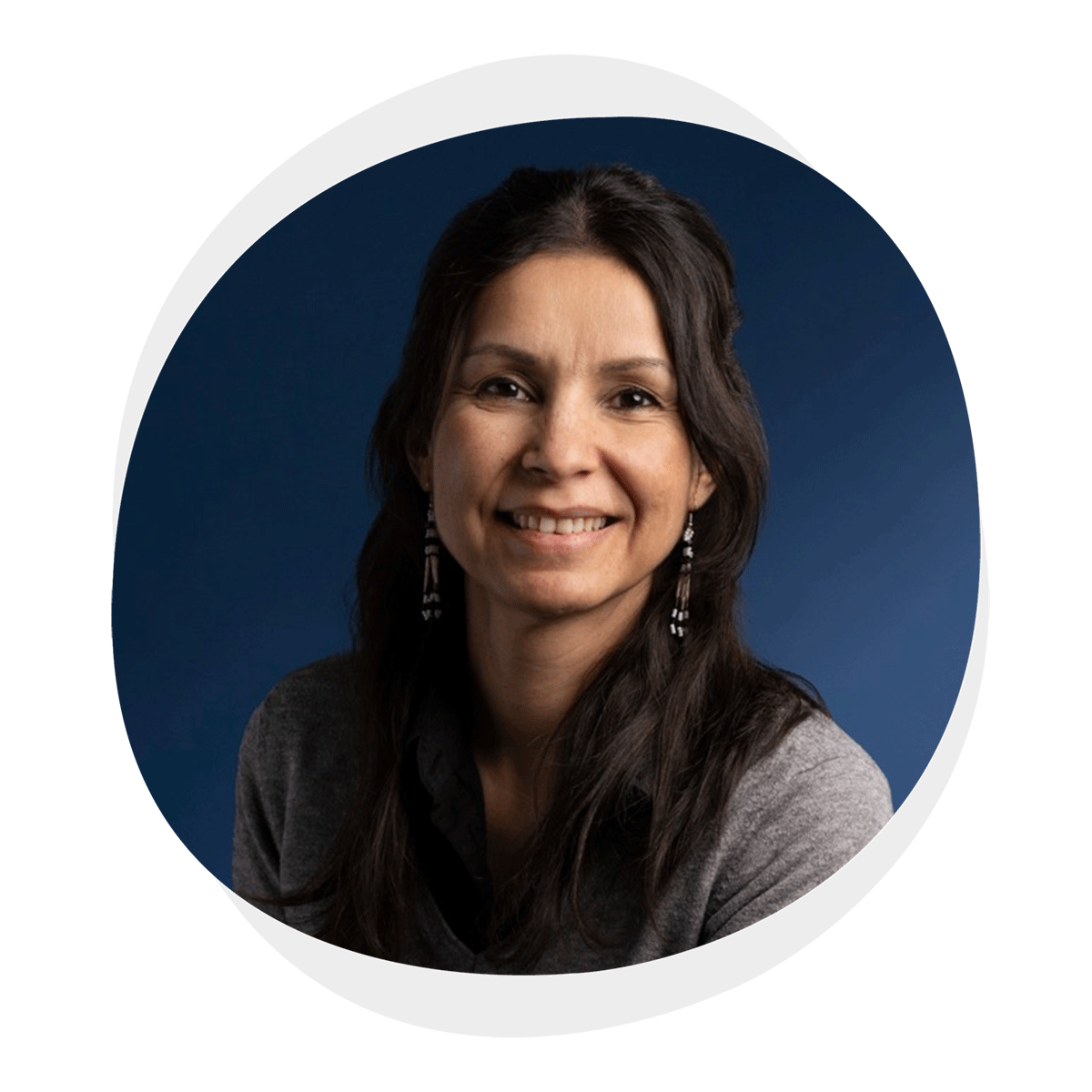Nancy Wiscutie-Crépeau
Professor and researcher at the Institut national de la recherche scientifique (INRS), Nancy Wiscutie-Crépeau’s work places her at the crossroads of two worlds: academic knowledge and Anicinabe knowledge. What drives her above all else is the preservation of the Anicinabe language, the transmission of knowledge, and the vitality of culture—which is not static, but rather very much alive, in motion, rooted in the present and connected to ancestors.
For her, education extends far beyond the walls of the school. It takes shape in ways of being, doing, knowing, and being in relation to the land and the heritage, both tangible and intangible, of previous generations. Nancy seeks to preserve this knowledge through her efforts and to bring it into dialogue with contemporary practices, without distorting its meaning.
Nancy challenges colonial approaches in research that solicit indigenous communities and authorities without listening, adding weight to shoulders that are already burdened. Through her actions, she advocates for the decolonization of practices and research: respecting rhythms, human relationships, and building with and through—not for or on—communities.
Born in the town of Senneterre, located on the ancestral territory of the Wiscutie family, Nancy proudly affirms her connection to the land, her family, and her nation. She contributes to the advancement of indigenous education and has been actively involved with Minwashin for several years, notably in the establishment of a resource center and the design of educational tools rooted in storytelling, art, and collective memory.
Her commitment: to contribute to the creation of spaces for transmission where speaking, listening, and relationships are at the heart of human, collective, and rooted processes.
What she seeks: to contribute to the transmission of language and knowledge, and to honor the memory of ancestors.



